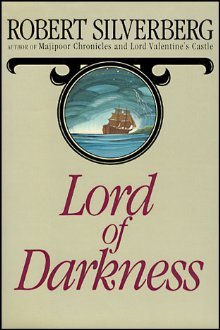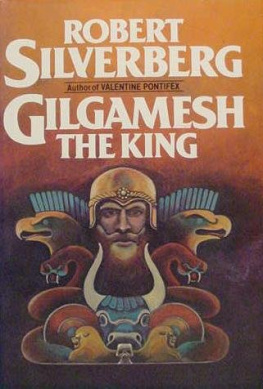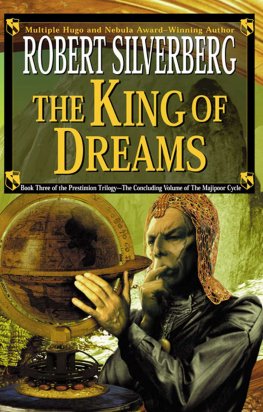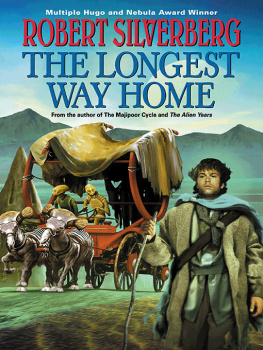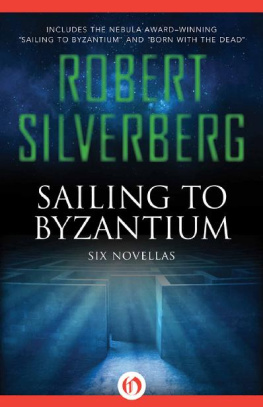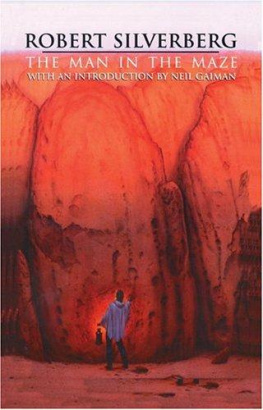The Stochastic Man
by Robert Silverberg
It is remarkable that a science which began with the consideration of games of chance should have become the most important object of human knowledge The most important questions of life are, for the most part, really only problems of probability.
LAPLACE,
Thorie Analytique des ProbabilitsOnce a man learns to see, he finds himself alone in the world with nothing but folly.
CASTANEDA,
A Separate RealityWe are born by accident into a purely random universe. Our lives are determined by entirely fortuitous combinations of genes. Whatever happens happens by chance. The concepts of cause and effect are fallacies. There are only seeming causes leading to apparent effects. Since nothing truly follows from anything else, we swim each day through seas of chaos, and nothing is predictable, not even the events of the very next instant.
Do you believe that?
If you do, I pity you, because yours must be a bleak and terrifying and comfortless life.
I think I once believed something very much like that, when I was about seventeen and the world seemed hostile and incomprehensible. I think I once believed that the universe is a gigantic dice game, without purpose or pattern, into which we foolish mortals interpose the comforting notion of causality for the sake of supporting our precarious, fragile sanity. I think I once felt that in this random, capricious cosmos were lucky to survive from hour to hour, let alone from year to year, because at any moment, without warning or reason, the sun might go nova or the world turn into a great blob of petroleum jelly. Faith and good works are insufficient, indeed irrelevant; anything might befall anyone at any time; therefore live for the moment and take no heed of tomorrow, for it takes no heed of you.
A mighty cynical-sounding philosophy, and mighty adolescent-sounding, too. Adolescent cynicism is mainly a defense against fear. As I grew older I suppose I found the world less frightening, and I became less cynical. I regained some of the innocence of childhood and accepted, as any child accepts, the concept of causality. Push the baby and the baby falls down. Cause and effect. Let the begonia go a week without water and the begonia starts to shrivel. Cause and effect. Kick the football hard and it sails through the air. Cause and effect, cause and effect. The universe, I conceded, may be without purpose, but certainly not without pattern. Thus I took my first steps on the road that led me to my career and thence into politics and from there to the teachings of the all-seeing Martin Carvajal, that dark and tortured man who now rests in the peace he dreaded. It was Carvajal who brought me to the place in space and time I occupy on this day.
My name is Lew Nichols. I have light sandy hair, dark eyes, no significant identifying scars, and I stand exactly two meters tall. I was married two-group to Sundara Shastri. We had no children and now we are separated, no decree. My current age is not quite thirty-five years. I was born in New York City on 1 January 1966 at 0216 hours. Earlier that evening two simultaneous events of historic magnitude were recorded in New York: the inauguration of the glamorous and famous Mayor John Lindsay and the onset of the great, catastrophic first New York subway strike. Do you believe in simultaneity? I do. Theres no stochasticity without simultaneity, and no sanity either. If we try to see the universe as an aggregation of unrelated happenings, a sparkling pointillist canvas of noncausality, were lost.
My mother was due to deliver in mid-January, but I arrived two weeks ahead of time, most inconveniently for my parents, who had to get to the hospital in the small hours of New Years Eve in a city suddenly deprived of public transport. If their predictive techniques had been keener, they might have thought of renting a car that evening. If Mayor Lindsay had been using better predictive techniques, I suppose the poor bastard would have resigned at his own swearing-in and saved himself years of headaches.
Causality is a decent, honorable principle, but it doesnt have all the answers. If we want to make sense of things, we have to move on beyond it. We have to recognize that many important phenomena refuse to be packed into neat casual packages but can be interpreted only by stochastic methods.
A system in which events occur according to a law of probability but arent individually determined in accordance with the principle of causality is a stochastic system. The daily rising of the sun isnt a stochastic event; its inflexibly and invariably determined by the relative positions of the earth and the sun in the heavens, and once we understand the causal mechanism theres no risk in predicting that the sun will rise tomorrow and the next day and the next. We can even predict the exact time of sunrise, and we dont guess it, we know it in advance. The tendency of water to flow downhill isnt a stochastic event either; its a function of gravitational attraction, which we hold to be a constant. But there are many areas where causality fails us and stochasticity must come to our rescue.
For instance were unable to predict the movements of any one molecule in a liter of oxygen, but with some understanding of kinetic theory we can confidently anticipate the behavior of the whole liter. We have no way of foretelling when a particular uranium atom will undergo radioactive decay, but we can calculate quite accurately how many atoms in a block of U-235 will disintegrate in the next ten thousand years. We dont know what the next spin of the roulette wheel will bring, but the house has a good idea of what its take is likely to be over the course of a long evening. All sorts of processes, however unpredictable they may seem on a minute-to-minute or case-by-case basis, are predictable by stochastic techniques.
Stochastic.According to the Oxford English Dictionary this word was coined in 1662 and is now rare or obs. Dont believe it. Its the OED thats obs., not stochastic, which gets less obs. every day. The word is from the Greek, originally meaning target or point of aim, from which the Greeks derived a word meaning to aim at a mark, and, by metaphorical extension, to reflect, to think. It came into English first as a fancy way of saying pertaining to guesswork, as in Whitefoots remark about Sir Thomas Browne in 1712: Tho he were no prophet yet in that faculty which comes nearest it, he excelled, i.e., the stochastick, wherein he was seldom mistaken, as to future events.
In the immortal words of Ralph Cudworth (1617-1688), There is need and use of this stochastical judging and opinion concerning truth and falsehood in human life. Those whose way of life is truly governed by the stochastic philosophy are prudent and judicious, and tend never to generalize from a skimpy sample. As Jacques Bernoulli demonstrated early in the eighteenth century, an isolated event is no harbinger of anything, but the greater your sampling the more likely you are to guess the true distribution of phenomena within your sample.
So much for probability theory. I pass swiftly and uneasily over Poisson distributions, the Central Limit Theorem, the Kolmogorov axioms, Ehrenhaft games, Markov chains, the Pascal triangle, and all the rest. I mean to spare you such mathematical convolutions. ("Let p be the probability of the happening of an event in a single trial, and let s be the number of times the event is observed to happen in n trials ") My point is only that the pure stochastician teaches himself to observe what we at the Center for Stochastic Processes have come to call the Bernoulli Interval, a pause during which we ask ourselves,


